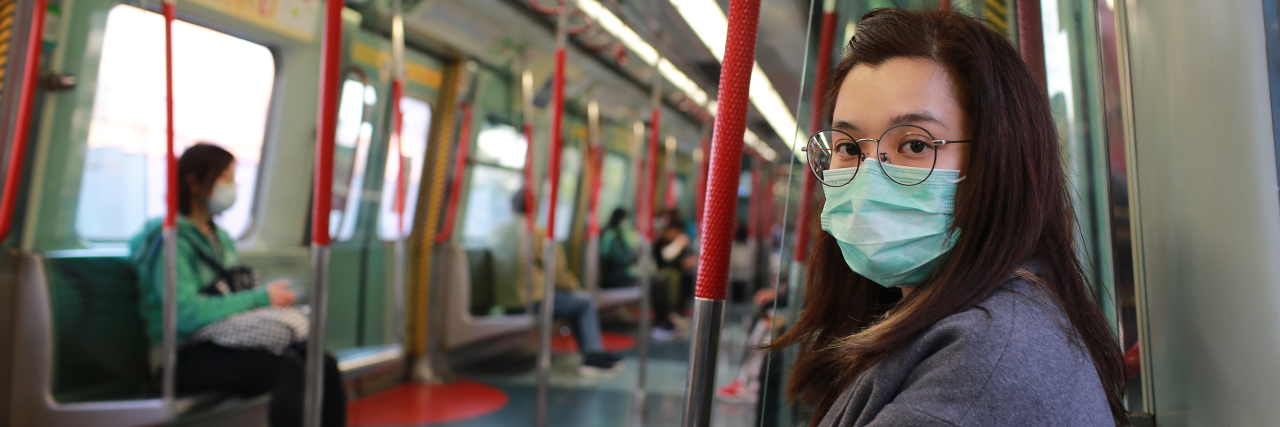With the outbreak of coronavirus, the use of protective health measures has been thrust into the media spotlight. Face masks, being highly visible, have been targeted and turned into a symbol of mass panic. Despite mountains of evidence of their efficacy, media outlets continue to report sensationalized stories of their perceived lack of effectiveness. While reporting on their failing, the media fails to acknowledge the vital importance of face masks to those of us who live with chronic illness.
I was born with a connective tissue disorder. Two years ago I started a long course of steroids to help my symptoms. A side effect of this was an increased susceptibility to bacteria and viruses. Although I have been off steroids for over a year, the recent coronavirus outbreak got me thinking about all the people who live with immune deficiency, either as a side effect of medication or as an inborn or acquired medical condition. It got me thinking about the face masks I used to wear whenever I visited the hospital to lessen my risk of infection, the bottles of hand gel I carried around and the numerous tablets I took every day.
This week, I have read news articles calling the purchase of face masks “hysterical” and “as good as useless.” I wonder if the media are aware that by vilifying important protective measures, they are harming those of us who need them the most?
Protective health measures such as face masks have decades of evidence behind them. They are used in high-risk settings all over the world and are mandatory in some intensive care units. A 2008 study found that “Any type of general mask use is likely to decrease viral exposure and infection risk on a population level.” They help protect the patients from the mask wearers’ germs.
Although I am no longer classified as immunosuppressed, like most people with a chronic illness I am acutely aware of the risk of infection. We spend more time than most in “high risk” areas such as hospital waiting rooms and wards, and with so much else to navigate, “normal person sick” is something most of us try to avoid at all costs. Whatever our reason for wearing a mask, we should never be vilified for it.
The use of face masks (and other protective health measures) help chronically ill people in two ways. Firstly, they offer a small amount of added protection against catching infection. Secondly and much more importantly, when used on a wide scale, they cut the risk of the spread of infection throughout society. This is all the more important with the coronavirus, which, like most flu viruses, does not have symptoms for the first six days. This means seemingly healthy people can carry and unwittingly spread the disease. If everyone attending hospitals and other busy places were to wear masks, regardless of having symptoms, the spread would be reduced drastically.
Not only should the media be more mindful of the reasons some people chose to wear face masks, they should also be aware of the good they do on a population-wide level. Even though face masks only decrease the risk of catching infection (they do not eliminate it) they do even more when it comes to avoiding spreading infection. Jimmy Whitworth, professor of international public health at the London School of Hygiene and Tropical Medicine, told The Independent: “There’s little evidence that they are very effective [at preventing coronavirus]. They’re more beneficial if you have a virus and don’t want to pass it on than to prevent catching anything.” Shouldn’t preventing the spread of coronavirus be a priority? Those of us with chronic health conditions, especially those with weakened immune systems, certainly think it should be.
I personally feel grateful to everyone who chooses to wear a face mask, because whether they realize it or not, they are helping. They are not only protecting themselves, they also protect those of us most vulnerable to the spread of infection.
Getty image by LewisTsePuiLung.

